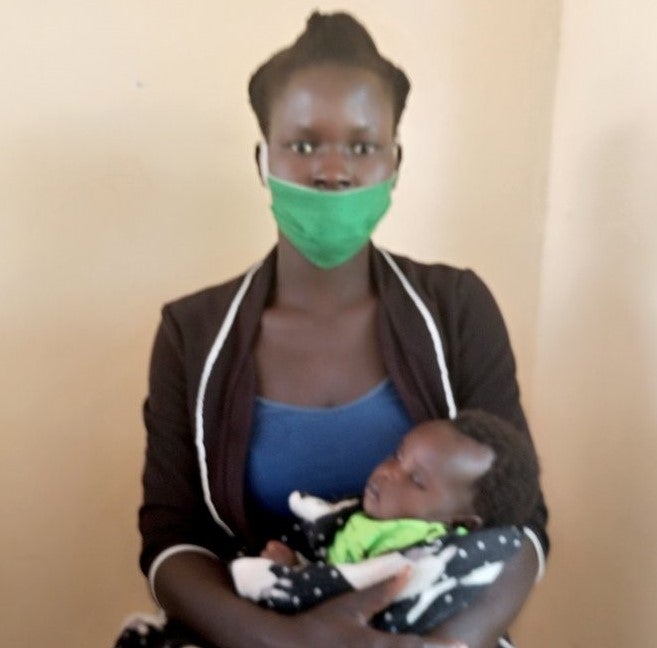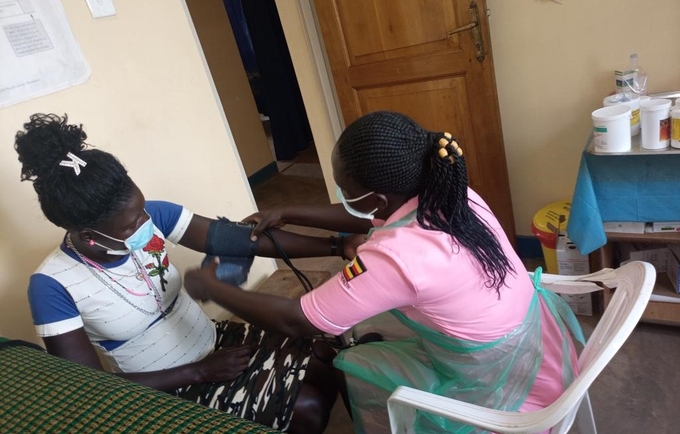LABONGO-OGALI, AMURU, Uganda - At the height of the COVID-19 pandemic, restrictions such as school closures have further heightened the plight of adolescents and young people in many rural communities. Many girls have been exposed to violence, abuse, and exploitation and thus making them even susceptible to unwanted pregnancies, forced marriages, and other sexual and reproductive ill-health. These circumstances call for action to ensure adolescent girls, women, persons with disabilities are supported to access quality maternal health services, family planning, and a full range of contraception, HIV prevention, treatment, and care among others.
To do this, UNFPA with funding from the Netherlands Embassy is implementing the ANSWER Programme in West Nile and Acholi sub-region including Amuru district where Implementing Partners such as Marie Stopes Uganda are working with the District Local Government to achieve universal access to sexual and reproductive health for all.
As a strategy to address the high unmet need for Basic Emergency Obstetric and Neonatal Care (BEMONC), UNFPA supported Marie Stopes Uganda to train midwives such as Ms. Betty Bigombe Adyero on BEMONC. According to the midwife, she indicates that the training sharpened her knowledge and skills in areas such as management of normal labour, Postnatal Care, Postpartum hemorrhage, Neonatal resuscitation, Pre-eclampsia, and Family Planning services among others.
In each of the UNFPA supported health facilities, there are two trained Village Health Teams (VHTs) who conduct mapping and referrals targeting adolescent girls and women for maternity and family planning services. John Paul Okello, one of the VHTs explains that he utilizes all avenues to conduct pregnancy mapping while observing the COVID-19 Standard Operating Procedures (SOPs). At the start of the implementation of the voucher system, Mr. Okello mapped more than ninety (90) mothers and this even improved as time went by. He recalls identifying a fourteen-year-old girl, and he engaged the parents and together the girl used the voucher issued to access Antenatal Care Services and safe delivery the skilled birth attendants at the health facility.

a safe delivery by a skilled birth attendant with support from UNFPA.
PHOTO: UNFPA/Cinderella Anena
Ms. Adyero highlights that the VHTs are significantly contributing to community-facility linkages especially in linking the adolescent girls to access lifesaving Sexual Reproductive Health and Rights (SRHR) services inclusively. “While we strive to provide the lifesaving SRHR services, there have been noted improvements in the uptake of family planning services and institutional deliveries amidst the pandemic,” Adyero explains. She further adds that mothers are confident to seek healthcare services, especially women and girls from impoverished and vulnerable communities. At Labongo Ogali Heath Centre III, more than 600 mothers who have benefitted from maternity services and over 150 mothers for family planning services with support from UNFPA.
Ms. Eunice Apiyo and Everline Abalo are some of the beneficiaries. Ms. Apiyo is a 21-year-old mother of a two-month-old baby gave birth at Labongo-Ogali Health Centre III, with support of a skilled midwife. She says that the voucher services enabled her access to a range of services during antenatal care and delivery at this health facility. “The VHT made follow-ups with me at home to remind me of the antenatal visits, and every time I visited the health facility, I was examined by the midwives,” says Ms. Apiyo.
Despite the challenges brought by the COVID-19 pandemic, Ms. Adyero affirms that expectant mothers are confident of quality maternal healthcare services at the health facility.
Where there is a need for referral, the midwives coordinate with the office of the District Health Officer(DHO) to ensure mothers are referred either to Gulu Regional Referral Hospital or St. Mary’s Hospital, Lacor.
Ms. Abalo, a 22-year-old mother of a two-and-a-half-month-old baby expresses gratitude for the support for referral services from Okungedi, a hard-to-reach community to Lacor where she had a cesarean. Both Abalo and the baby are in good health and she attributes this to the voucher services, without which she may not have afforded it.
Ms. Apiyo appreciates that the voucher services have transformed their lives and recommends that the service and all components of the ANSWER programme should benefit all the girls and women, who are often socially excluded and lack the resources to access healthcare services.
Compiled by Cinderella Anena/UNFPA Uganda.

